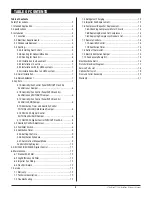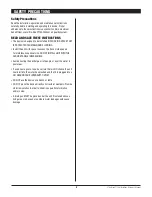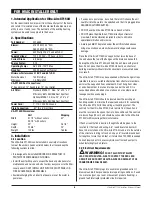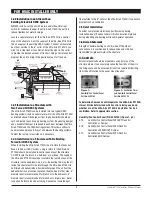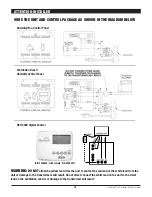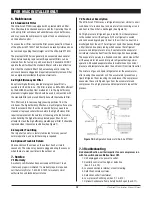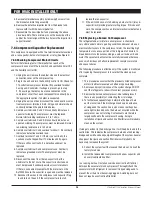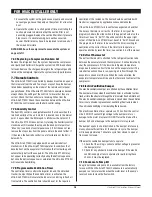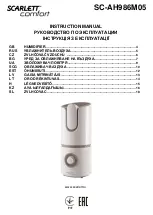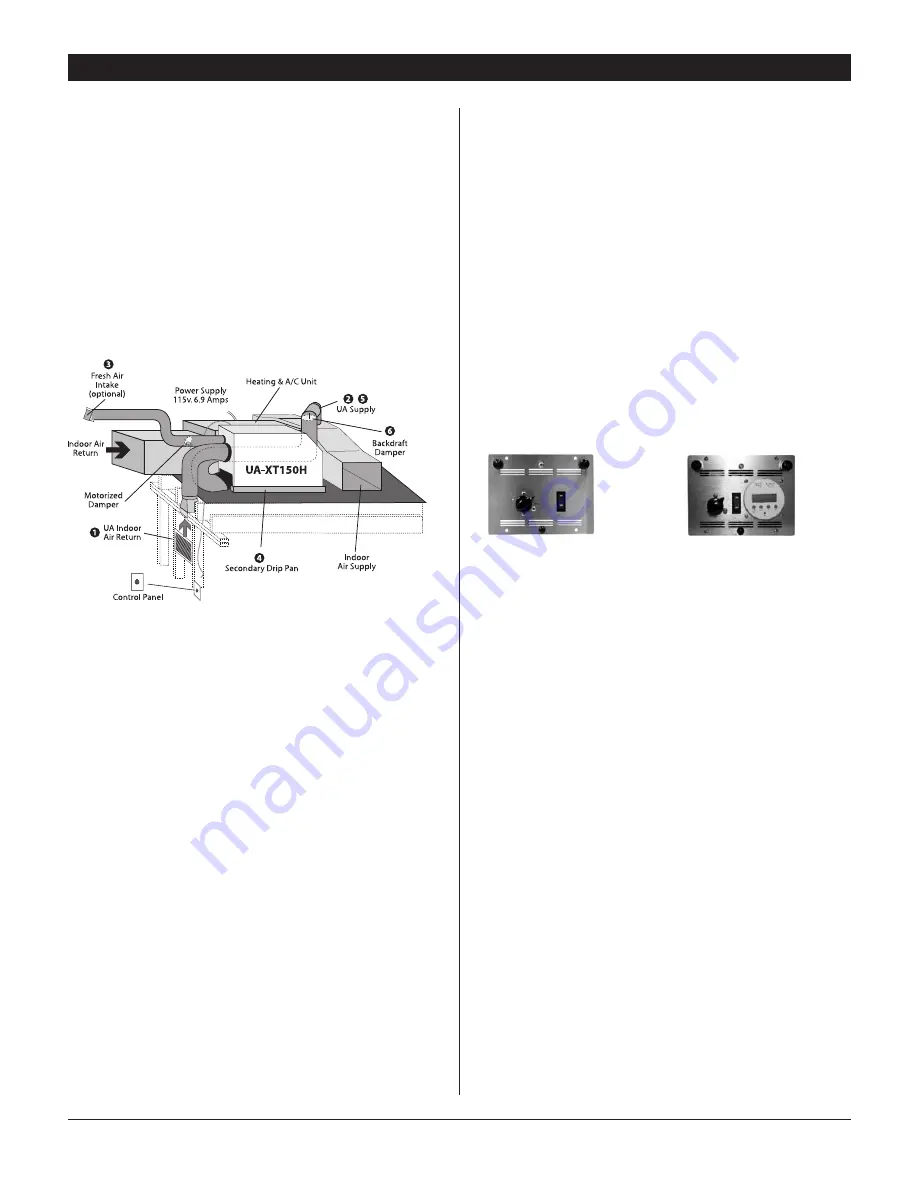
3.4E Installation in an Attic with an
Existing Forced Air HVAC System
ALWAYS install a catch pan with a drain and/or float interrupt
switch for condensate under the Ultra-Aire XT150H in an attic to
reduce likelihood of water damage.
Locate a separate return for the Ultra-Aire XT150H in a central
area of the structure. Duct the supply of the Ultra-Aire XT150H to
the air supply of the existing HVAC system. Connect an insulated
duct from outside to the 6" collar of the Ultra-Aire XT150H if you
wish to provide fresh air ventilation. Adjust damper in the collar
to provide the desired amount of fresh air. Using a remote control,
program the unit to bring in the desired amount of fresh air.
3.4F Installation in a Structure with
Two Forced Air HVAC Systems
The Ultra-Aire XT150H can be installed into two typical HVAC
ducting systems. Install a separate return for the Ultra-Aire XT150H
as directed above. Discharge air from the dehumidifier should be
split and routed to each supply ducting system. A balancing damper
and a backdraft damper is required in each duct between the Ultra-
Aire XT150H and the HVAC ducting system. This allows airflow to
be adjusted and prevents flow of air between the ducting systems.
Contact the factory for assistance, if necessary.
3.4G Installation in a Structure with No Existing
Forced Air HVAC System
When installing the Ultra-Aire XT150H in a structure that does not
have a forced air HVAC system, a single return for the Ultra-Aire
XT150H should be installed in central open area of the structure.
DO NOT locate the return in a bathroom or a kitchen. The supply of
the Ultra-Aire XT150H should be located in the remote areas of the
structure (such as bedrooms, den, etc.). By ducting this way, the air
inside the structure will circulate through the Ultra-Aire XT150H to
be filtered and dehumidified. Avoid discharging all the air from the
dehumidifier in one location to prevent heat build up in that area. 4"
diameter duct is recommended for branches to the bedrooms, 6"
diameter duct is recommended for branches to larger areas. Refer
to section 3.4B for branch duct sizing. Connect an insulated duct
from outside to the 6" collar of the Ultra-Aire XT150H if you wish to
provide fresh air ventilation.
3.5 Quiet Installation
Consider compression vibration and airflow noise during
installation. Use of flex duct and/or vibration isolation materials
during mounting and ducting will result in quieter operation.
3.6 Noise Abatement
A length of flexible ducting on all Ultra-Aire XT150H duct
connections is recommended to reduce noise and vibration
transmitted to rigid ductwork in the structure.
4. Controls
All control panels should be mounted in a central area of the
structure where it can accurately sense the humidity of the air in
the living space and be accessed. All controls require field wiring
from the unit location to the panel mount location.
To determine how each control operates the Ultra-Aire XT150H,
it must first be determined which control is being used and
whether or not the Ultra-Aire XT150H is ducted for fresh air
ventilation. Refer to appropriate section.
Humidity/Fan Control Panel (P/N 4024155) (Figure 1, p.7)
4.1A
Humidity/Fan Control Panel WITHOUT Fresh Air
Ventilation or Damper
4.1B
Humidity/Fan Control Panel WITH Fresh Air
Ventilation and WITHOUT Damper
4.1C
Humidity/Fan Control Panel WITH Fresh Air
Ventilation AND Damper
FOR HVAC INSTALLER ONLY
7
Figure 1:
Humidity/Fan Control Panel
Part No. 4024155
Figure 2:
Ventilation Timer
and Humidity Control Panel
Part No. 4024125
Ultra-Aire XT150H Installer’s & Owner’s Manual


